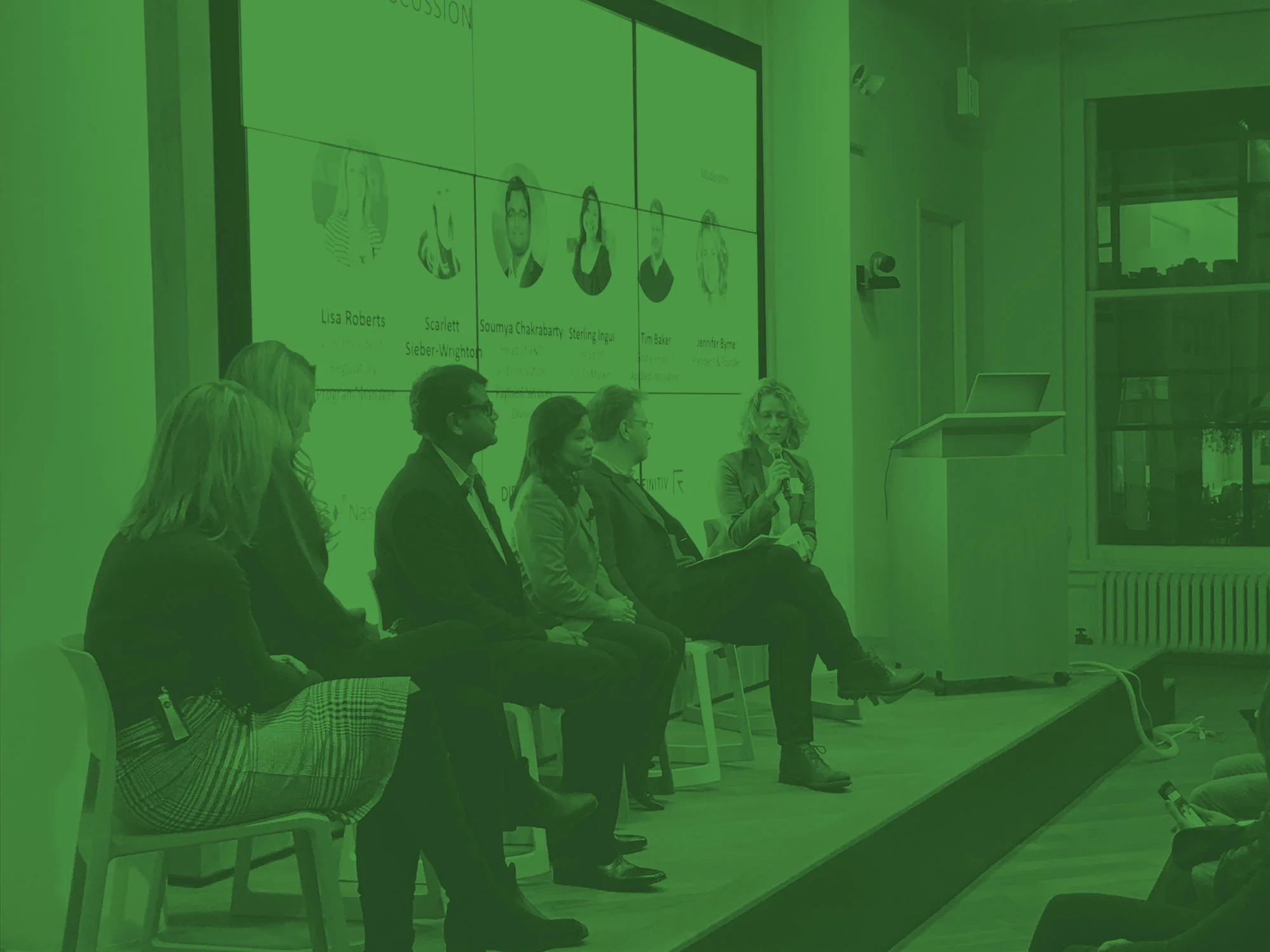Head of Go To Market,
Fidelity Labs
Corporate innovation may feel like a catch phrase, but at Fidelity Investments, we are truly committed to it.
I work at Fidelity Labs, our in-house new businesses incubator, so innovation is our singular mandate. But the spirit of continuous improvement in how we serve companies and customers is embedded in the DNA of all of our business units. One way we work to achieve this is by creating intentional diversity in thought leadership, talent, strategy, resources and relationships. A broader set of people and approaches is one of the best ways we know to make sure we look at challenges from many angles.
So it should come as no surprise that I was eager to join the Female Founders in FinTech’s (FFiT) panel on corporate innovation. I enjoy hearing the diverse perspectives that my peers at different companies bring to the table where innovation is concerned. At the FFiT panel, we discussed the challenges of corporate innovation, provided tips for startups who want to engage with corporations, and announced the five finalists, out of 76 entrants.
Panelists Soumya Chakrabarty, Sterling Ingui, and Tim Baker enjoy a casual moment as Jennifer Byrne gets ready to kick off the panel.
I was joined on the panel by fintech leaders including Tim Baker of Refinitiv Labs (formerly Thomson Reuters Labs), Soumya Dev Chakrabarty of Discover, Lisa Roberts of Nasdaq and fintech expert Scarlett Sieber-Wrighton. The panel was moderated by Quesnay co-founder and president Jennifer Byrne. The topic on the table was corporate innovation and specifically, how intentional diversification of people and teams influences the work we do.
I was proud to share examples of how Fidelity embraces a diversity of viewpoints, people, and backgrounds, as evidenced by our robust employee resources groups, and our talent initiatives. We have one program in which we upskill non-technical talent into technology roles, and another internship that enables employees with disabilities to have new work experiences.
Unsurprisingly, innovation takes a variety of forms in our organizations, and there are many secrets to success for corporate innovation. At Fidelity, one of our secrets to success is having strong relationships with our partners across business functions, including Legal, Risk, Procurement, and Compliance. As my compliance colleague has said, he feels his job is to be the best set of brakes available so that I can go as fast as I want. My legal and risk partners work hard to provide guidance and oversight to protect our customers and business, while enabling us to get our work done. And our procurement partners have been working with us to find better processes to help us explore new opportunities faster.
Best Practices for Startups who are looking to work with corporations
From the audience, there was interest in best practices for startups who are looking to work with corporations. Tim Baker kicked us off with a great one,
“Just use the large organization’s NDA.”
It is the first step needed to build a relationship with a larger corporation.
Second, have patience. As I mentioned above, our partners across our organization help us in invaluable ways, but it can take time to work through a large organization’s processes.
Finally, Scarlett gave the advice of not “overfishing” (reaching out to multiple people in the same organization) and coming prepared to share how the startup can add value for the bigger organization.
As I shared, I encourage startups to work with corporations because there is a shared value for both. We see it more and more in FinTech, the opportunities for corporations to work with startups are expanding. In FinTech, both corporations and startups are looking to provide a fuller suite of offerings that support an individual’s financial life in a seamless and automated way. If we can help each other do so faster and more efficiently, there is an opportunity for both parties.
The Female Founders in FinTech event was a great way to bring larger organizations and startups together. Next up, the five finalists will be pitching to judges for the top prizes in early March in New York. I’m looking forward to mentoring one of the finalists, as I’m sure to learn something new from them as well. When we help the startup community, we bring new thinking to our own work, and together we all shape the future of our industry for the good of the customers and companies we have the privilege to serve.



